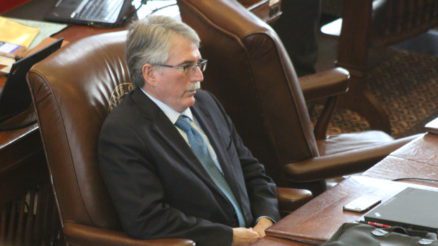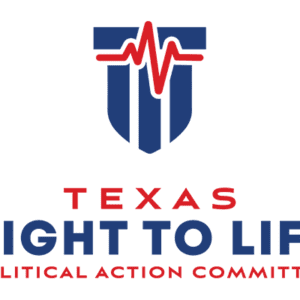Chilling political intimidation aims to halt Tea Party in Texas
The 2010 Citizens United decision by the U.S. Supreme Court changed the law of the land to allow non-profit advocacy organizations to participate in “political speech.” These advocacy groups are called 501(c) (4) corporations under IRS rules and exist to advocate on behalf of groups of people. Since 2012 a scandal involving the IRS has been under investigation by the U.S. Congress regarding reported efforts by different federal agencies to “shut down” conservative 501(c) (4) organizations. That investigation continues, especially in the face of proposed IRS rules that would prohibit these groups from participating in political speech.
This effort by the Democratic-controlled federal government against these advocacy groups is widely viewed as what it is: political intimidation. In fact, one email recently released by the IRS quoted one official who said, “This is their latest push to shut these down. One IRS prosecution would make an impact and they wouldn’t feel so comfortable doing the stuff.” This attempt could not be more clear.
In a very similar situation, THSC announced in a recent media release that our own 501(c) (4) organization was joining with that of Texas Right to Life (TRTL) in intervening in a federal lawsuit with Empower Texans (also a 501(c) (4) corporation) against the Texas Ethics Commission (TEC). We are intervening because the TEC is attempting to do by rule in Texas what the IRS has been attempting to do in Washington, D.C.: intimidate 501(c) (4) groups to keep them from participating in political speech.
The TEC has issued subpoenas asking for information on all donors of Empower Texans 501(c) (4) group, in addition to emails, communications, etc., for a period of up to the last two years. In fact, the TEC has said that 501(c) (4) groups should be treated like political action committees (PACs). Of course, these advocacy groups are not PACs.
PACs are groups established only for the purpose of political activity and may coordinate directly with campaigns. According to the IRS, advocacy groups are created for the purpose of engaging in social advocacy for a cause. So, THSC advocates for home schooling and parental rights, TRTL advocates for the cause of the unborn, and Empower Texans advocates for the cause of taxpayers. In spite of this distinction, the TEC wants to treat 501(c) (4) organizations in the same manner as PACs because some of their activities are political in nature. In fact, the TEC would not allow THSC’s 501(c) (4) to file our report during the recent Primary elections and instead forced us to file the advocacy group’s activities as our PAC’s activities.
It has become clear that moderate Republicans in the Texas Legislature are seeking to use the same kind of tactics used by the Obama IRS to intimidate non-profit advocacy groups who participate in political speech. In fact, the TEC is now attempting to adopt rules that would treat these groups the same as PACs so that their donors would be exposed to political pressure. There have been recent reports of some of these groups saying that their donors have received calls from elected officials “asking” them not to financially support these groups. That, of course, is the end game: intimidation of donors to keep these groups from advocating with political speech.
In the last Texas legislative session, SB 346 was passed. It would have required every 501(c) (4) group, except labor unions, to file reports giving their donors’ information, just like PACs are required to do. This was clearly designed to hamstring conservative groups while allowing labor unions who typically support liberal candidates to be exempt. Virtually every 501(c) (4) at the Texas Capitol opposed this bill. The Texas Senate took the extraordinary step of recalling the bill by a two-third vote the day after it passed the Senate, but the Texas House refused, and a coalition of moderate Republicans and Democrats passed the bill out of the Texas House and sent it to the governor. Governor Perry vetoed the bill, saying it would have had a “chilling effect” on free speech and freedom of association.
In recent days we have seen a clear example of this kind of intimidation when a non-profit organization fired its CEO after only days on the job because his financial support for traditional marriage in the Proposition 8 campaign in California in 2008 was exposed by opponents and pro-homosexual rights advocates campaigned for his dismissal.
Recently an attorney told me that he had been contacted by a Texas House member who said he wanted information about how the Legislature could force 501(c) (4) groups to expose their donors. While these same moderate Republicans and their friends in the Texas media continue to call this a problem of “dark money,” which is money used for political purposes without reporting the donors, the real issue is elected officials who cannot defend their record at the ballot box and therefore are trying to circumvent the Supreme Court’s ruling that allows advocacy groups to participate in political speech by forcing them to publicize all of their donors. The irony is that while these kinds of actions are not surprising coming from the Obama Administration, in Texas it is coming from Republicans.
More and more often people are coming to understand what is at stake here. National commentator George Will explained why he is no longer in favor of full disclosure. "The people advocating full disclosure in campaign contributions say we just want voters to be able to make an informed choice. That’s not what they’re doing at all. They really want to enable themselves to mount punitive campaigns and to tear people and chill political speech." I couldn’t agree more — whether it’s the Obama Administration or the Texas Ethics Commission.
Tags: 2014 election, legislation




